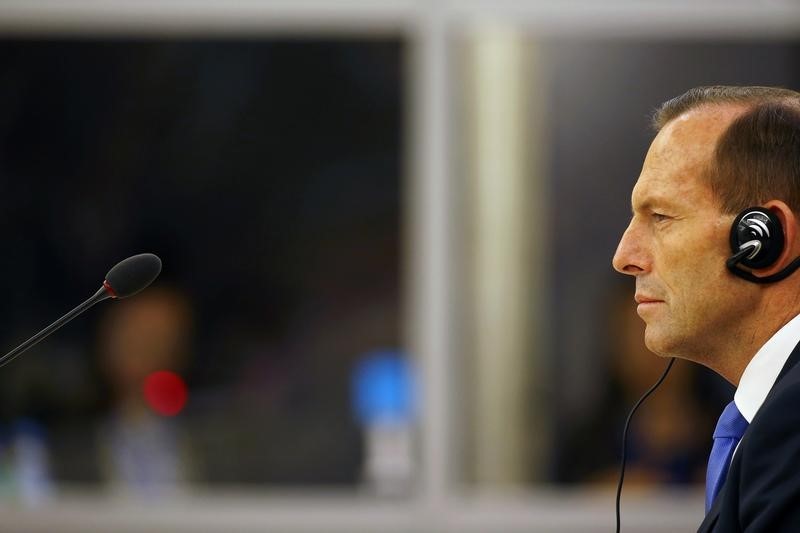By Matt Siegel
SYDNEY, Sept 10 (Reuters) - Australian Prime Minister Tony Abbott on Thursday defended his country's climate change policy during a regional summit in Papua New Guinea, amid calls from Pacific island leaders to end new coal mine construction worldwide.
Impoverished, low-lying Pacific Islands such as Vanuatu, Kiribati and Tuvalu are among the most vulnerable countries in the world to climate change and rising waters and have long pushed for greater global action to combat them.
Abbott last month announced cuts to Australia's greenhouse gas emissions that were widely criticised by environmental groups for lagging behind other advanced economies.
Australia pledged to cut emissions by 26-28 percent of 2005 levels by 2030, a commitment that did little to stem criticism of Abbott's strong support for coal and for scrapping an ambitious carbon tax and emissions trading plan last year.
"Unlike some other countries, which make these pledges and don't deliver, Australia does deliver when we make a pledge," Abbott told reporters.
"So, I think I've got a very good story to tell on climate change to the Pacific Islands Forum and I think Pacific leaders should be reassured by the seriousness with which Australia is approaching this issue."
Australia is the world's largest exporter of coal, a commodity Abbott has defended as being "good for humanity".
The Pacific islands are looking to use this week's forum to pressure Australia to do more to halt climate change. On Monday, Tuvalu Prime Minister Enele Sopoaga joined other members of the forum's Alliance of Small Island States, which met privately ahead of the summit, in calling for an ambitious global ban on new coal mines.
"We're simply seeking the rights of small island states to survive," Sopoaga said. "We feel our security is compromised; survival of the people of the Pacific is compromised."
Developed nations are on track to cut their greenhouse emissions by almost 30 percent by 2030, Reuters calculations show, falling far short of a halving suggested by a U.N. panel of scientists as a fair share to limit climate change.
